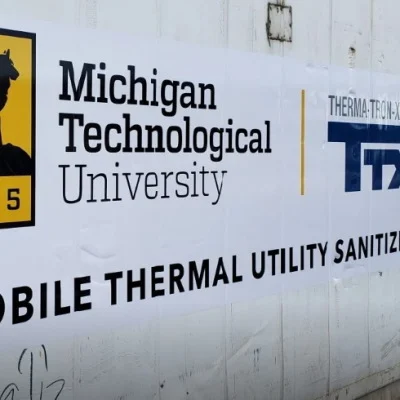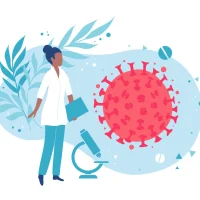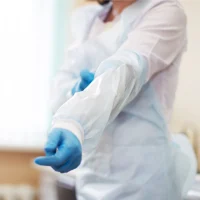Many hospitals around the world are facing shortages of personal protective equipment (PPE), such as N95 masks and face shields, to treat COVID-19 patients. Two research teams have come up with makeshift sterilisation solutions while one is working on self-sterilising filters.
You may also like: Dealing with N95 Mask Shortages
UV Light
A team at Binghamton University has designed sterilisation stations that use ultraviolet light to kill the coronavirus on any contaminated PPE. Already set up and in use, these stations can be assembled within three hours and are equipped with large UV bulbs and foil to increase the amount of sanitising energy.
Based on data on SARS and other coronaviruses, the team built a computational model and refined the dosage. Prof. Kaiming Ye, who led the design project, says the technique proved to be effective.
Heating
An engineering team from Michigan Technological University has created a mobile unit to disinfect up to 10,000 COVID-19 PPE units in two hours with high temperatures (60-80°C). It is, in fact, a big moveable oven that can be quickly and easily assembled inside a thick-walled shipping container. Other adjustments include swapping refrigeration unit for a heating one run on an electric generator and installing stainless steel racks and trays holding PPE, such as coats, gowns, N95 masks, face shields, sleeves, etc. The unit can also be used for cleaning large items like gurneys, beds, and other difficult-to-clean equipment and materials.
Self-Sterilising Air Filtration
In the future, sterilisation may not be even needed – at least for some types of PPE, such as masks. Researchers at Ben-Gurion University of the Negev in Beer-Sheva in Israel are developing a new type of air filter that self-sterilises and decontaminates. It is based on water filtration technology, namely laser-induced graphene (LIG) water filters that eliminate viruses and bacteria.
Among others, the technology can be integrated into face
masks for self-sterilisation, including the N95 respirator mask, thus providing
a higher level of protection for medical providers and eliminating the risks of
handling a contaminated material.
Image credit: MTU


![Tuberculosis Diagnostics: The Promise of [18F]FDT PET Imaging Tuberculosis Diagnostics: The Promise of [18F]FDT PET Imaging](https://res.cloudinary.com/healthmanagement-org/image/upload/c_thumb,f_auto,fl_lossy,h_184,q_90,w_500/v1721132076/cw/00127782_cw_image_wi_88cc5f34b1423cec414436d2748b40ce.webp)







